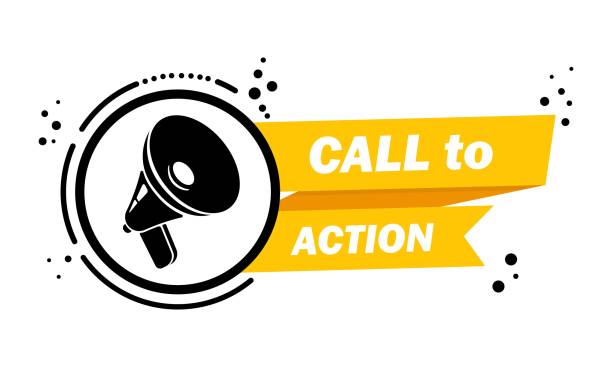
School Nutrition
Guidance, policy updates and actionable resources for schools & districts focused on nutritional standards and access to school meals.
Background
AASA strongly supports the enactment of comprehensive services and programs that encourage children to be healthy.
- Schools will not have to do anything for SY24-25 – everything will remain the same.
- Sodium is far less stringent than the original proposal – there will only be one more reduction.
- Milk and whole grain rules remain the same as now.
- Moving forward states are not required to take fiscal action against districts who are not able to be in compliance due to supply chain disruptions for other issues.
AASA's Position & Priorities
The guiding principles for federal education policy stem from equity and the important role the federal government stands to play in creating equitable learning opportunities for all students. AASA is committed to advocating for better access to school meals and reasonable nutrition standards for students in the public school system.
AASA's priorities are to:
- Support universal school meals on the contingency that such policies do no harm to eligibility for and enrollment in existing federal funding streams serving schools, and fully cover costs associated with the program
- Refrain from increasing the administrative burden related to nutrition eligibility verification
- Ensure that licensing and certification requirements for school nutrition workers are a state responsibility
- Ensure federal school meal reimbursement rates are sufficient to cover the full cost of production
“For years, AASA has been sounding the alarm that when nutrition standards go too far result is meals that students are not willing to consume, undermining the entire purpose of the program – to feed students and ensure they are ready to learn.
David R. Schuler, AASA executive director
Issue Updates
-
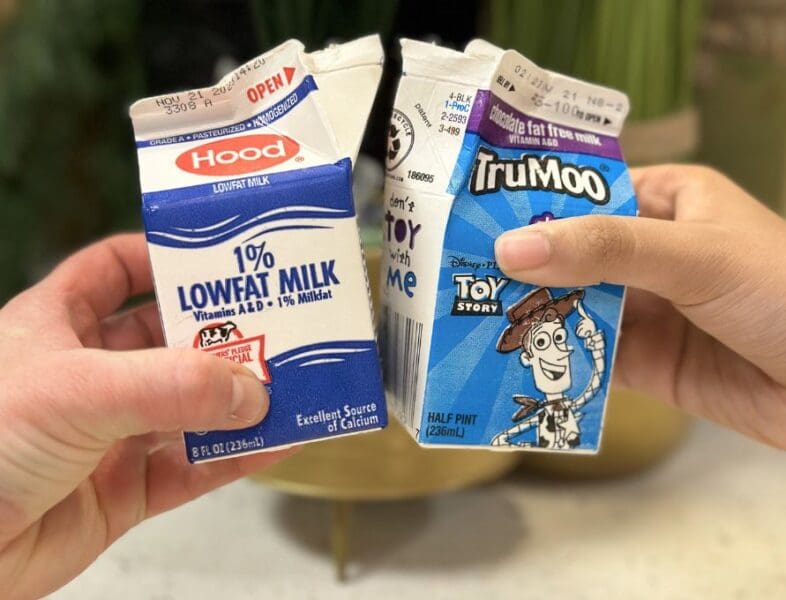
January 23, 2026
UPDATE: Whole Milk is BackSchools can serve whole milk again, but only at lunch.
-

January 12, 2026
Administration Releases Dietary Guidelines for AmericansLast week, the U.S. Department of Agriculture (USDA) and the Department of Health and Human Services (HHS) released the 2025-2030 Dietary Guidelines for Americans (DGAs). Updated every five years, the DGAs provide evidence-based recommendations to promote health and reduce chronic disease risk, and by law, USDA must use them to update school nutrition regulations.
-
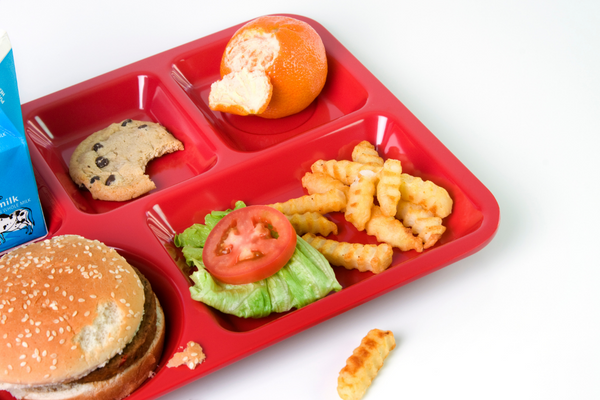
March 12, 2025
USDA Cancels Funding for Local Food to SchoolsUSDA has announced that it is cancelling two programs – estimated worth of $1 billion – that provides resources for schools and other organizations to purchase local foods.
-

January 15, 2025
CDC Releases New Report on Youth Dietary, Physical Activity, and Sleep BehaviorsEarlier this week, the Center for Disease Control (CDC) released a new report as part of their Healthy Schools Program to prevent chronic disease among children and adolescents.
AASA Resources
-
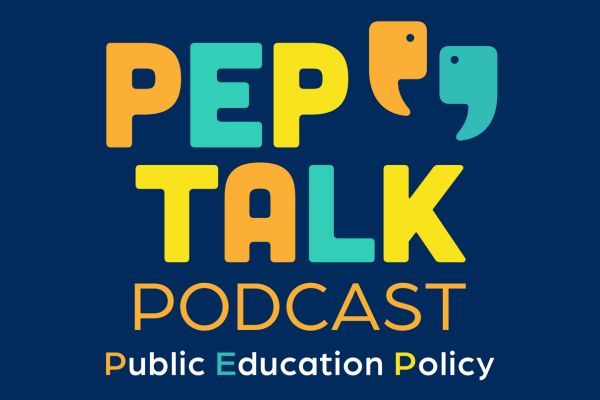
May 16, 2024
PEP Talk Episode 30: The New Nutrition RegulationsType:Podcast Topics: Advocacy & Policy Health & WellnessOn this episode of PEP Talk, Kat Sturdevant welcomes back Tara Thomas, AASA policy analyst, to discuss the changes and updates from the U.S. Department of Agriculture (USDA) to the school nutrition standards for the National School Lunch Program and School Breakfast Program. -
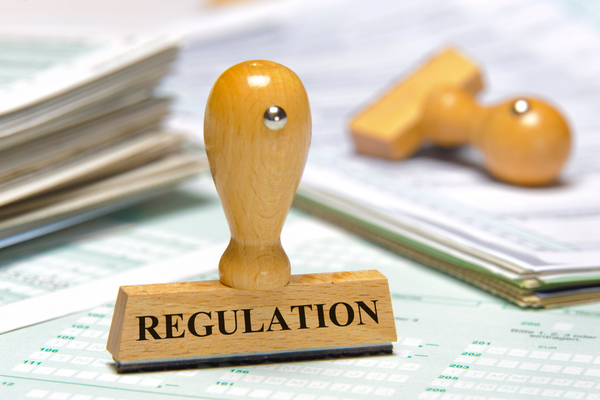
March 15, 2023
CALL TO ACTION: Submit comments on the proposed updates to the school nutrition standards.Type:Guidance/Sample/Template Topics: Advocacy & Policy Health & WellnessOn February 3, USDA released a proposal to update the school nutrition standards to align with the 2020 Dietary Guidelines. It is critical that USDA hears the superintendent perspective on how these standards will impact their districts. -
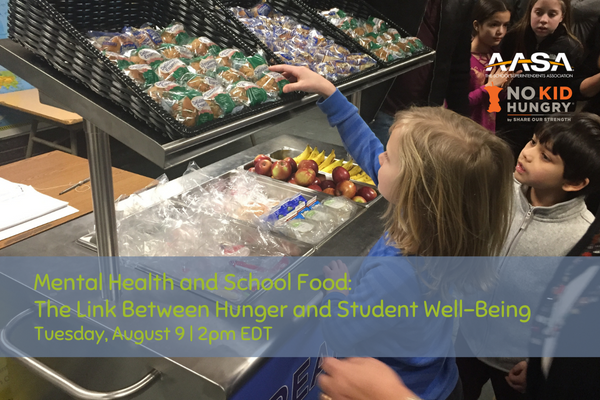
August 09, 2022
Mental Health and School FoodType:Webinar Recording The Link Between Hunger and Student Well-Being -
-(6).png?sfvrsn=4a2d5f5a_7)
March 30, 2021
AASA Quarterly Federal Policy Update - SpringType:Webinar Recording Topics: Advocacy & PolicyAASA’s Director of Advocacy, Sasha Pudelski, will walk AASA members through the latest funding and policy changes
Get Involved
Get the most up-to-date information and alerts so you can make your voice heard.
Get the AASA Advocacy App
Additional Resources
U.S. Department of Education Resources
- Public school students eligible for free or reduced-price lunch
- Back to School 2022-2023: HOW TO PRIORITIZE THE HEALTH AND SAFETY OF STUDENTS, SCHOOL PERSONNEL, AND FAMILIES
- Free or Reduced-Price Lunch vs. Direct Certification: Understanding School Lunch Eligibility in the Common Core of Data
- Nutrition Standards for School Meals (Source: USDA)
Resources to Support School Nutrition
- Measuring Student Poverty (Source: Urban Alliance)
- Model Estimates of Poverty in Schools (Source: Urban Alliance)
- Toward a Better Measure (Source: Data Quality Campaign)
- Is Free and Reduced-Price Lunch a Valid Measure of Educational Disadvantage? (Source: Domina, Pharris-Ciuriej, and Sanabria. [2018]. Educational Researcher.)
- Food Insufficiency During COVID-19 (Source: Food & Research Action Center [FRAC])

Superintendent Advocacy at Your Fingertips
Educate. Influence. Impact.
Download the AASA Advocacy App today.

